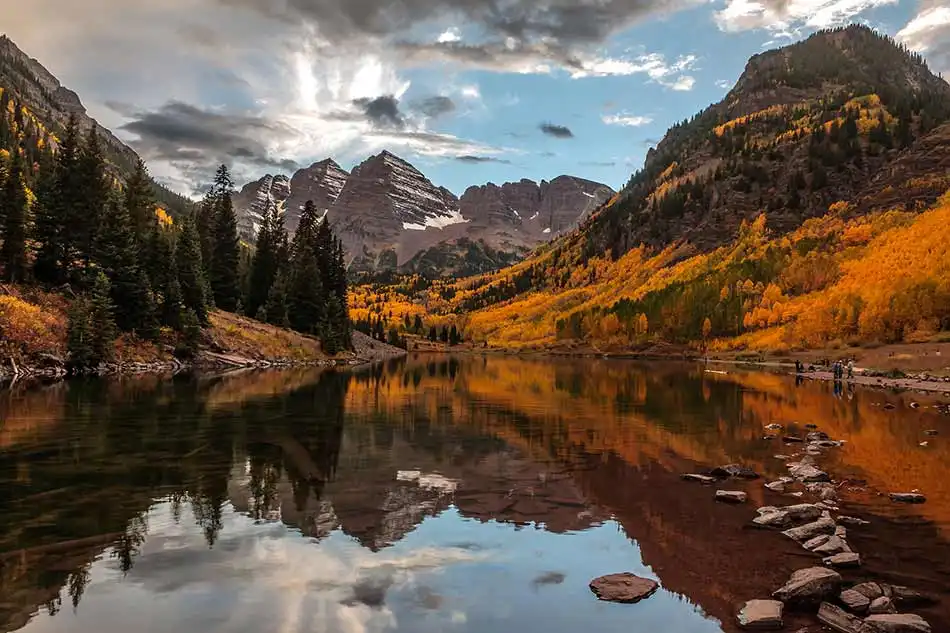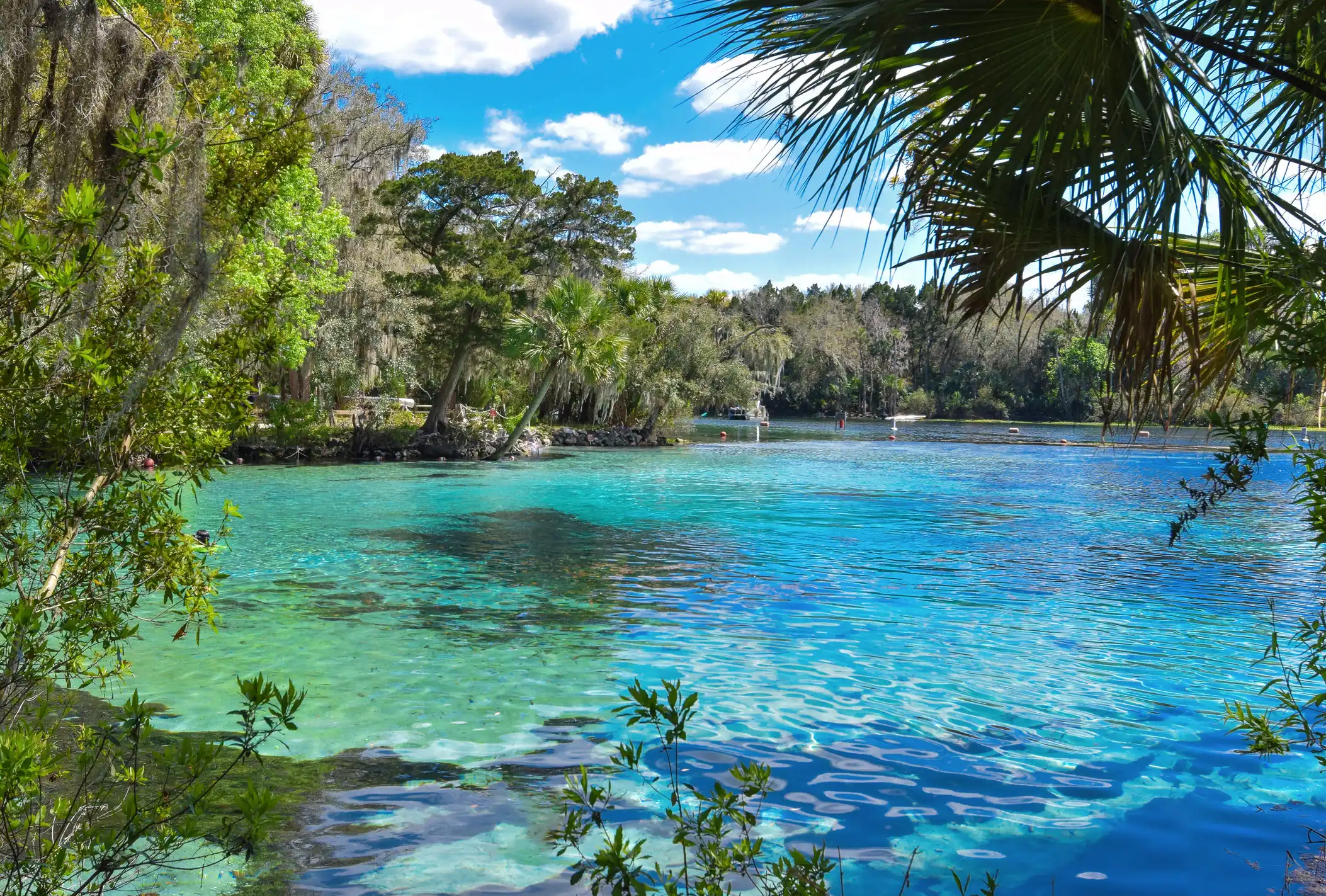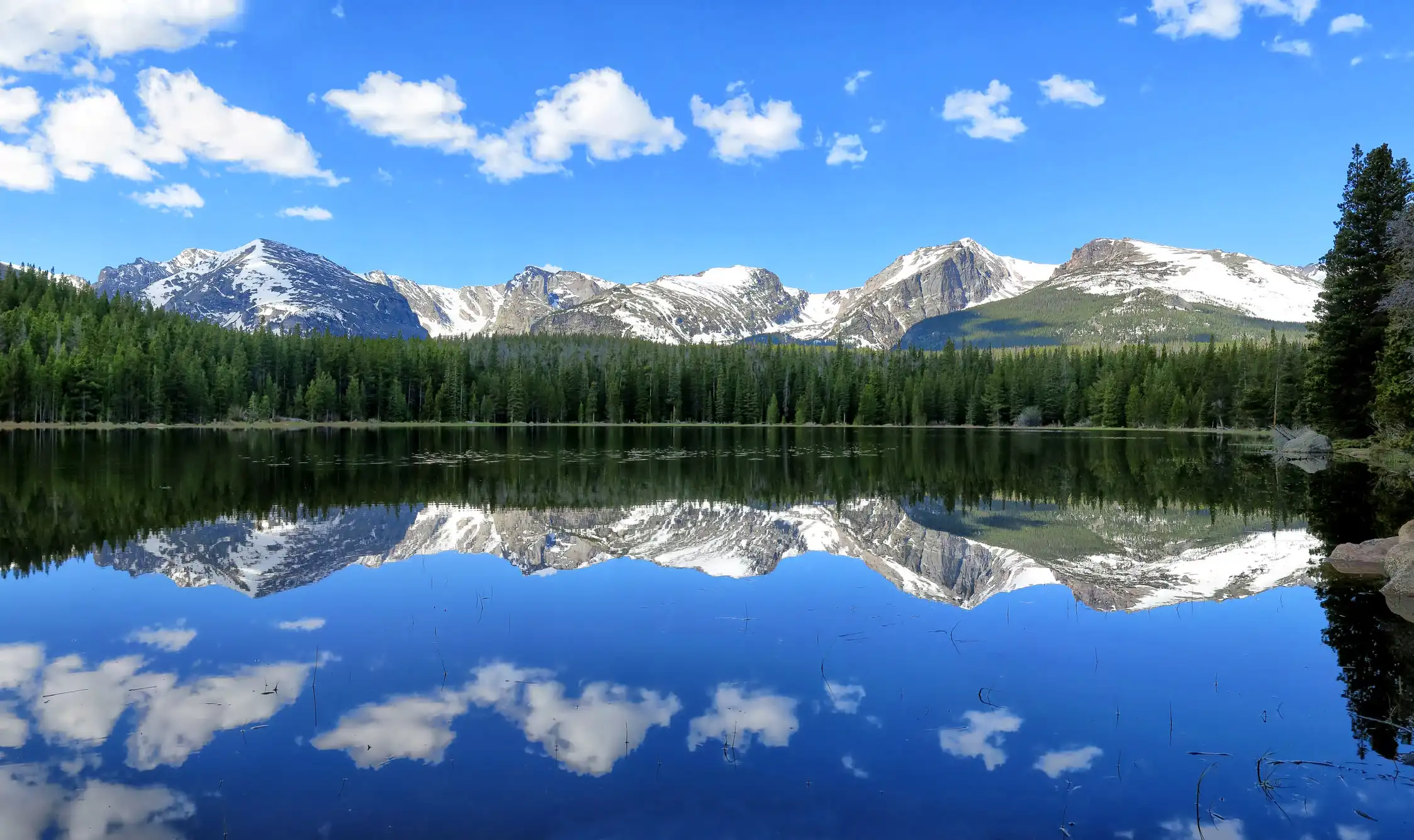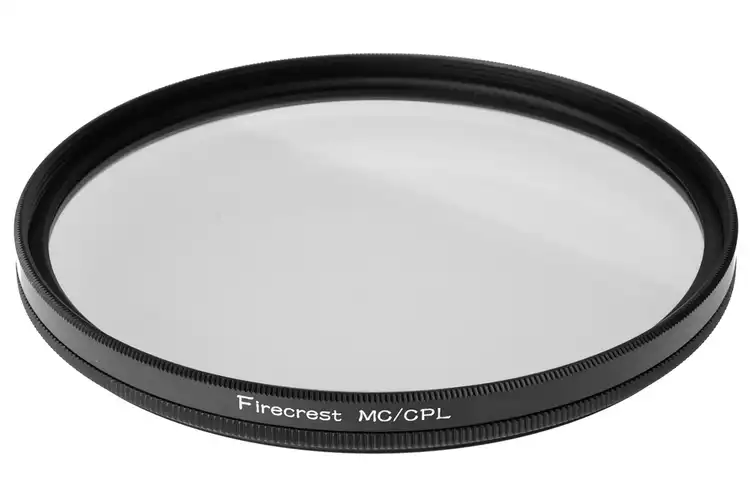What Does A Polarizing Filter Do
- 117.6K

Polarizer
Read just about whatever photography tutorial having to do with polarizer filters, and yous'll be told that they are an essential slice of gear, particularly for landscape photographers.
There are a number of reasons for that, which I'll outline in just a moment.
But there are also situations in which youshouldn'temploy a polarizer, and agreement when not to use one is just about every bit important as knowing when to use one.
Allow's take a expect at a few scenarios to assistance you lot get a ameliorate understanding of how to get the about out of your polarizer.
When to Use a Polarizer Filter?
The beauty of polarizers is that they solve all sorts of problems with outdoor photography...
To Cut Down Glare

If in that location'southward water in the scene, a polarizer will minimize the glare from the lord's day off the surface of the water.
Not only does this meliorate the look and feel of the prototype by non having a vivid glare to distract the eye, just if the h2o is shallow, a polarizer allows yous to actually see into the water.
That'south an obvious do good regardless, just peculiarly if you're using water equally foreground interest because the viewer volition be able to see what lurks beneath the water's surface.
Additionally, polarizers eliminate reflections off of wet surfaces you lot might encounter in a landscape, like rocks or leaves along a body of water.
That means you go deeper, more than saturated colors, again without the distraction of the lord's day'southward glare.
To Use Slower Shutter Speeds

What some photographers don't know is that a polarizer will actually allow you lot use a slower shutter speed than usual.
Now, a polarizer certainly isn't going to give you the same light-stopping power as a neutral density filter will...
But you tin get a couple more clicks of shutter speed to get those gorgeous, milky water effects like you see in the image above.
To Make Clouds Pop

I know I've encountered my fair share of gorgeous landscapes that were unfortunately under a brilliant heaven with little definition and color.
Only a polarizer helps rectify that problem...
Not just does a polarizer add definition to brilliant clouds, just it too helps deepen the blue colour of the sky.
That's because a polarizer also helps minimize brume which is all too common - be it from smog, smoke from forest fires, fog, or a temperature inversion.
Equally a result, a polarizer is helpful for making the sky an nugget in your landscape photos, rather than being the low spot of the shot due to lack of color and definition.
When NOT to Utilize a Polarizer
And then now that you understand the benefits of using a polarizer for landscape photography, it's time to consider when using a polarizer is actually not such a good idea.
When You Want a Highlight Moisture Surfaces

Sometimes, eliminating the glare of wetness on landscape elements is actually detrimental to the shot.
Later on all, that wetness tin can add just a touch of soft reflection that gives the image a bit more depth and interest to the photo. Likewise, sometimes y'all might not want to see through water and instead use information technology to reverberate the scene, as is the example in the paradigm to a higher place.
The key here is to option and choose when to remove the polarizer...
If y'all detect that the reflections are too intense or distracting, use the polarizer. If they are subtle and soft, think almost continuing to shoot without a polarizer.
Low Calorie-free Situations

Equally noted earlier, polarizers reduce the amount of light inbound your lens, and then naturally, if you're shooting in dim lighting, a polarizer isn't going to get y'all the results y'all want.
Heavily forested scenes, canyons, or shooting at dusk are situations that immediately come to listen in which yous should go without the polarizer.
Likewise, if you're out at night shooting things like the night sky, a polarizer won't do you lot whatsoever favors.
For example, if you're photographing the moon, having a polarizer will simply force your camera to use a longer shutter speed or a higher ISO. Instead, remove the polarizer and speed up the shutter to avoid star trails (or extend the shutter to become star trails) and minimize the ISO to minimize digital noise in the shot.
When Lite Has Intense Colour

When in that location is a lot of color going on, such as at dusk, removing the polarizer from your lens can actually help your shot.
This is considering that color will be reflected off of any moisture surfaces in the paradigm.
So, if you're shooting a sunset at a embankment, going without a polarizer will allow you to incorporate the gorgeous, colour-filled reflected low-cal off of any rocks protruding from the water. What's more, almost sunset when the calorie-free is a nice golden color as seen above, going without a polarizer helps you highlight that color.
That, in plow, helps make for a more dramatic image with more than color and light in the photograph.
When Photographing Rainbows

Even though a rainbow isn't just reflected light (it's likewise due to refraction and dispersion of light), a polarizer will still minimize its advent in your photos.
That means that if you lot're shooting a scene with a rainbow, remove your polarizer and shoot without.
You'll find that the rainbow is far more intense and vibrant without it!
Final Thoughts

As you tin can see, there are plenty of situations in which a polarizer shouldn't be used.
Of grade, at that place are plenty of situations in which having a polarizer is critical, also.
Even though you shouldn't use a polarizer all the time, it's nonetheless an incredibly valuable tool to have at your disposal, especially for landscape photography.
Of course, like well-nigh photography gear, yous don't want to outfit yourself with something cheap. Instead, you want a high-quality polarizer filter that helps you lot produce first-class images while offering you lot years of durable service too.

That sort of quality is found in the circular polarizing filter by Formatt-Hitech pictured above.
With a Firecrest anti-cogitating multicoating, these polarizing filters ensure that your photos have the highest level of contrast and color allegiance.
Amend still, these polarizers come in a SuperSlim or UltraSlim rotating polarizer band, so they don't get in the way of the shot or cause vignetting.
With sizing options for 39-127mm lenses, these polarizing filters are compatible with a wide diverseness of gear too.
And best of all, you get a solid polarizing filter without spending an arm and a leg! What's not to similar about that?
We Recommend
What Does A Polarizing Filter Do,
Source: https://www.photographytalk.com/landscape-photography/7582-when-to-use-and-not-to-use-a-polarizer
Posted by: churchaceeakell.blogspot.com


0 Response to "What Does A Polarizing Filter Do"
Post a Comment